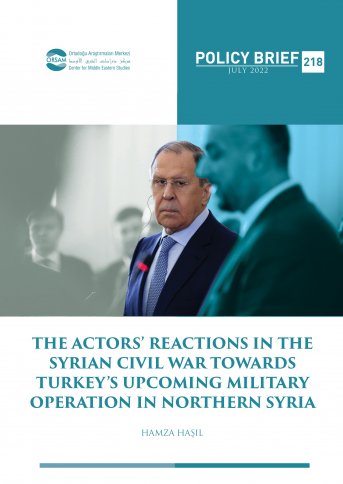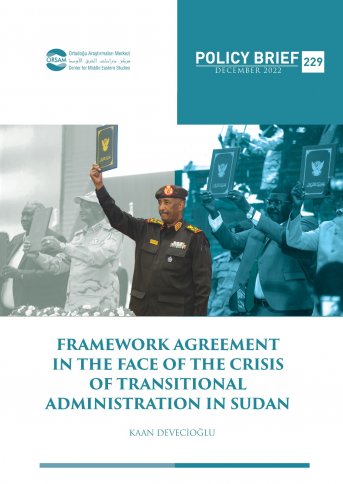
The Actors' Reactions in the Syrian Civil War towards Turkey's Upcoming Military Operation in Northern Syria
Although the civil war in Syria has created regional and international effects, its greatest impact is spreading out to neighboring countries. Being the longest land bordering neighbor with Syria, Turkey has been the country most affected by the turmoil in its southern neighbor. The ongoing war and instability since 2011 have caused millions of people to flee the country. It has also resulted in millions of people migrating within the country. The fact is that, by being the most stable country in the region and having borders with European countries, caused the direction of migration towards Turkey and resulted in a great population movement on Turkey's southern borders. Due to this social mobility, very different dynamics began to emerge in northern Syria in terms of demography, security, economic and administrative structure compared to the pre-war period. Particularly, the activities of non-state actors such as ISIS (Islamic State of Iraq and Syria) and YPG (People’s Defense Forces) to gain dominance in the region by taking advantage of the power vacuum there have made northern Syria unsuitable for civilian life.
Turkey, desiring to eliminate the chaotic situation in northern Syria and remove the threats to its national security from this region at its source, has been carrying out limited military operations in northern Syria since 2016. Turkey's most basic priority in these operations was to form a safe zone of at least 30 km wide along its borders and to preclude the threats here. Although Turkey explained its policy in the field as derived from security concerns to its interlocutors, its demands were not met satisfactorily. Turkey, which showed its determination to this policy, especially with the Operation Peace Spring, signed a series of agreements with the USA and Russia, which provide the evacuation of terrorist formations at least 30 km to the south, preventing stability along its borders. However, despite the elapsed time, the terrorist organization YPG, acting under the umbrella of the SDF (The Syrian Democratic Forces), did not recede from the region and continued to carry out activities to destabilize the safe zone created by Turkey, which was not in compliance with the commitments made after Operation Peace Spring. Although it continued to seek out diplomatic solutions to the situation, Turkey began preparations for a military operation after observing that diplomatic channels became ineffective. According to President Erdogan's statement on June 1, the first targets of the operation will be Tel Rifat and Manbij, but the operation will not be limited to these regions; it will continue along the Turkish border until the previously given commitments are fulfilled. Although Turkey had difficulties in finding diplomatic solutions to the instability in northern Syria, it took extra care to keep the diplomatic channels open with its regional and global counterparts in Syria after the military alternative became an option in order to minimize the negative impacts of the operation. The attitude of the actors involved in the Syrian crisis towards Turkey's possible military operation is important not only for the successful completion of the operation but also for the rapid establishment of stability in the region after the operation.








